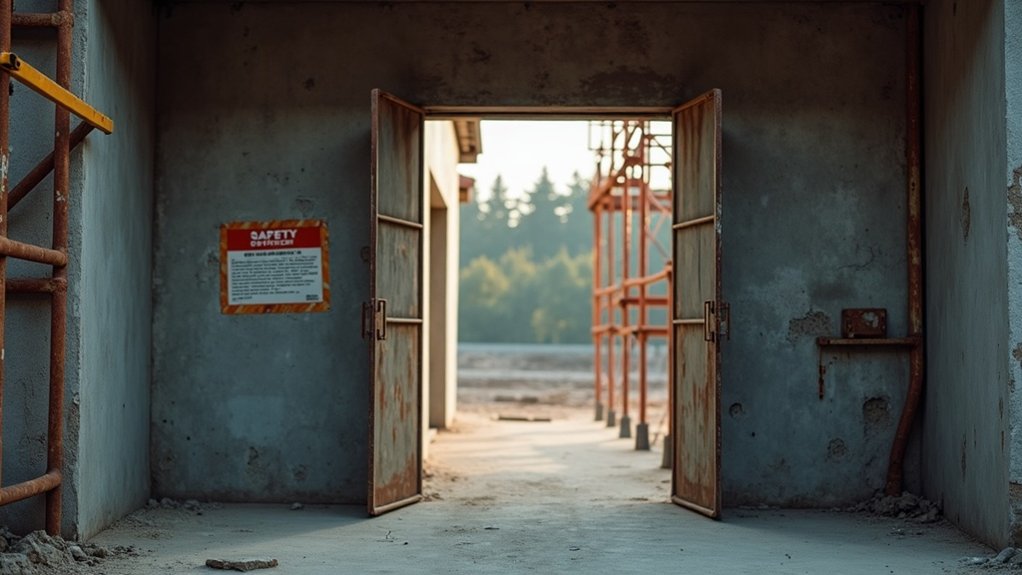You don’t legally need an MCS certificate to install solar panels, but without it, you’ll lose access to key government incentives like the Smart Export Guarantee, which can provide significant financial returns. MCS certification also guarantees your installation meets rigorous quality and safety standards, protecting your investment and maintaining warranties. Skipping certification increases risks of poor performance and reduces property value. Understanding these factors clarifies why MCS plays a critical role in successful solar projects.
Understanding the Role of MCS Certification in Solar Panel Installations
Although the MCS (Microgeneration Certification Scheme) certificate is not legally mandatory for solar panel installations, it plays an essential role in ensuring quality and eligibility for financial incentives such as the Smart Export Guarantee. If you want to qualify for these benefits, installations after July 15, 2009, must be completed by MCS-certified installers using certified products. Typically, installers issue the MCS certificate within 10 working days post-installation, confirming compliance with established safety and performance standards. The certification process involves regular audits and testing, which helps maintain high-quality standards and reduces malfunction risks. As of January 2024, over 3,300 solar installers hold MCS certification, reflecting a rigorous industry commitment to quality and reliability in solar panel installation practices. Using MCS-certified installers ensures that the installation meets strict regulatory standards and provides consumers with peace of mind regarding the quality of workmanship.
Benefits of Using MCS-Certified Products and Installers
When you opt for MCS-certified products and installers, you tap into a system designed to uphold stringent safety and performance standards, which greatly lowers the risk of malfunctions and operational issues. The certification process involves rigorous testing and regular audits, ensuring durability and effectiveness. Employing MCS-certified installers guarantees skilled workmanship and compliance with a Quality Management System, enhancing overall system efficiency. Benefits include:
- Assurance of high safety and performance standards, reducing operational risks.
- Enhanced system durability and reliability through continuous certification oversight.
- Increased property market value due to verified quality and dependable solar installations.
Additionally, using MCS-certified installers often qualifies you for Government Renewable Heat Incentive payments and access to reputable installer networks.
Financial Incentives Linked to MCS Certification
Since securing financial incentives for renewable energy installations often hinges on compliance with recognized standards, obtaining an MCS certificate becomes essential for homeowners. This certification enables you to access schemes like the Smart Export Guarantee, which can earn you up to £343 annually by exporting surplus solar energy to the grid. Without an MCS certificate, you risk losing eligibility for government-backed incentives and local or national grants, limiting your financial support options. Additionally, MCS-certified installations meet stringent quality and safety standards, protecting your investment and often enhancing your property’s value. By ensuring compliance, the MCS certificate not only opens up direct financial benefits but also boosts long-term returns, making it a critical component in the economic viability of renewable energy projects for homeowners. The Smart Export Guarantee requires MCS accreditation to ensure only quality renewable systems benefit from financial payments.
Risks and Considerations When Skipping MCS Certification
Deciding to forgo MCS certification can expose you to several significant risks that impact both the financial and functional aspects of your renewable energy installation. First, skipping certification may disqualify you from financial incentives like the Smart Export Guarantee, potentially reducing your earnings by about £343 annually. Second, installations performed by non-certified installers might suffer from reliability issues and poor performance, which diminishes long-term energy savings. Third, using an installer without MCS certification could invalidate manufacturer warranties, as many require certified installation for coverage. Additionally, uncertified systems may lower your property’s market appeal, and you lose the assurance of quality and safety standards enforced under the MCS scheme. These factors collectively suggest that bypassing certification could lead to unforeseen costs and complications.
